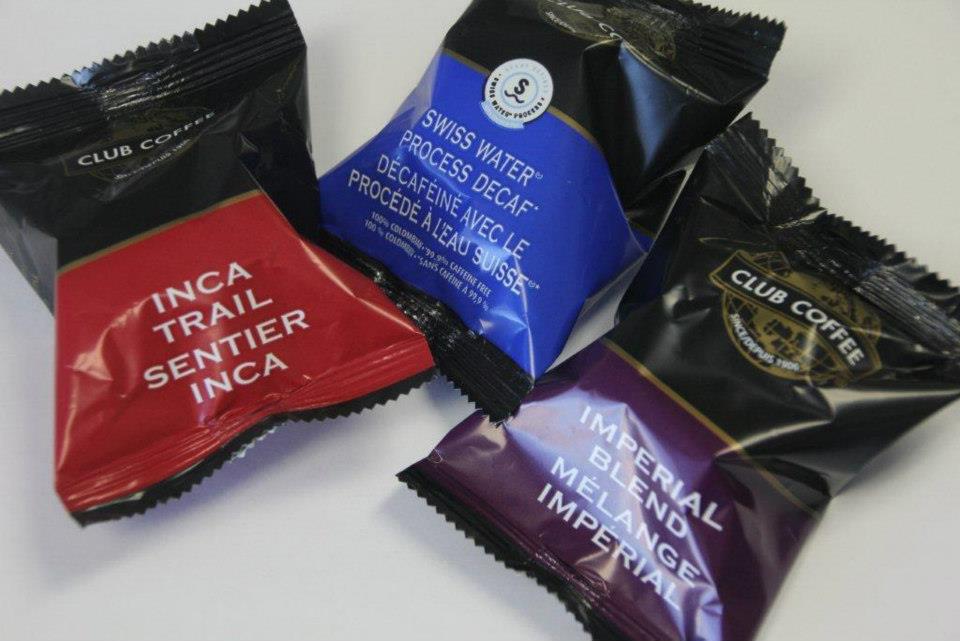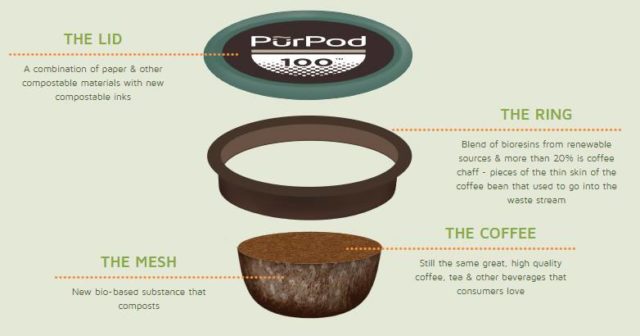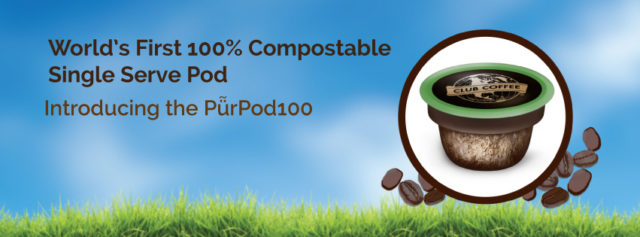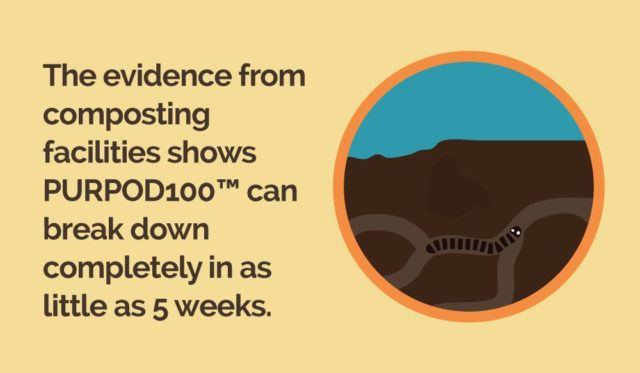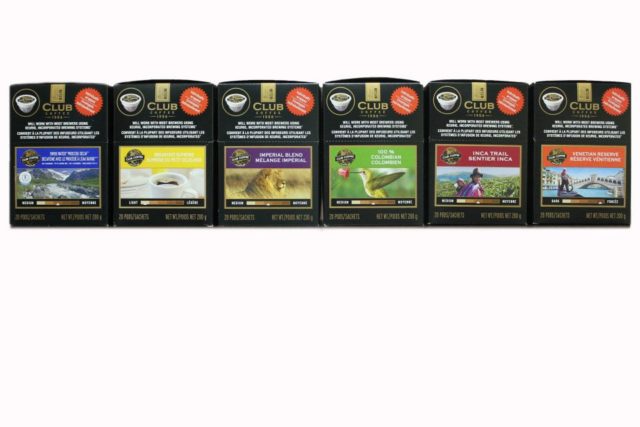-
Headquarters -
55 Carrier Dr, Toronto, Ontario, M9W 5V9
-
Year established -
1906
-
NAICS -
311920 - Coffee and tea manufacturing
-
Major expansions -
2012
-
Employees -
250
-
Exports -
US
-
Download -
Club Coffee
Club Coffee is a manufacturer of coffees, teas and hot beverages. The firm developed the world’s first certified 100 per cent compostable single-use coffee pod, designed for use in the most common Keurig® brewers.
Today, what is best for the environment is also often very good for business. This has certainly proven true for Club Coffee and its innovative single-use PῧrPod100™ coffee pod.
Located in Toronto, Club Coffee has been manufacturing high-quality ground and roasted coffee since 1906. It is now particularly focused on its role as a major co-manufacturer / co-packer of coffee, tea and other hot beverages for two major types of customer. One is the food service and hospitality sector, with Club producing coffee for sale to food service companies and their restaurant, hotel and institutional customers. The other centres on the production of custom-blended private label coffees for grocery store chains and other coffee brand partners. In 2015, Club Coffee’s annual sales reached close to $200 million, with 40% of that revenue coming from sales to American customers.
Producing coffees for two very exacting industry sectors and in a very competitive North American environment places a premium on Club to be customer-centred and innovative. A key to a customer-centred culture for Club Coffee are its focuses on quality and service. The company has won numerous awards from its customers, including Supplier of the Year from Loblaw, Canada’s largest food retailer and VIP Supplier status seven years in a row with Gordon Food Service in Canada and the US. Part of the commitment to meeting its customers’ needs involves achieving and exceeding key quality certifications such as its AA rating under the BRC Global Standard for Food Safety. It also has the flexibility and capacity to help its customers respond to growing consumer demand for coffees that meet standards such as organic, fair trade and Rain Forest Alliance certified.
Club Coffee has had many changes of ownership and corporate structure over its history. Since 2007, the company has been organized as a limited partnership. At that time, Nestlé Canada Inc., which then owned Club Coffee, sought a buyer for its Canadian coffee production operations. Nestlé reached out to Morrison Lamothe Inc. because its experience with that company as an innovative manufacturer of frozen foods suggested a management culture that would transfer well to Club Coffee’s business. The roots of Morrison Lamothe go back to 1911, when Cecil Morrison and Richard Lamothe started a bakery in Ottawa that introduced innovations such as sliced bread to that market. That company evolved with market opportunities, eventually focusing on frozen food products where it has customer relationships that have lasted decades, while also capitalizing on new opportunities.
Club Coffee now has two manufacturing plants in the Rexdale area of Toronto. One plant has the head office of the company and is the centre of the firm’s coffee roasting and grinding activities, including the production of roast coffees in bags and cans. The other plant was created specifically to process Club’s range of single serve products.
The company has approximately 250 employees. Most are now college or university-educated as production is largely automated, with skilled operators controlling the processes.
Together, the facilities produce approximately 500 custom label products and 160 of the Club Coffee branded products that go largely to food service and hospitality customers.
Single serve coffee has been a central factor in the recent growth and development of Club Coffee. At the time of the transfer of ownership, Club Coffee produced roast and ground coffee in the standard can and bag formats used for traditional drip brewed coffee making. However, discussions with customers and analysis of industry trends revealed that single serve coffee, particularly in the format established by Keurig® was already beginning to reshape consumer coffee buying in North America. That trend has continued. The most recent surveys find that almost 40% of Canadian adults have single serve brewers in their home, slightly ahead of US ownership levels. Those brewers are the top-selling small houseware appliance in both countries.
Working closely with customers wanting to provide their consumers with single serve coffee, Club Coffee identified formats, technologies and approaches that would enable it to help those customers to meet that consumer demand. It invested in the necessary equipment and acquired the second plant in order to meet the projected need, with the first single serve products from Club arriving in the market in 2012.
At part of that same process, Club Coffee recognized that the waste associated with single serve coffee, tea and other hot beverages was an emerging environmental issue for consumers that provided a high-profile innovation opportunity. The basis for that issue is the fact that nearly four million single-use pods are used and discarded every day in Canada. According to global market research group Ipsos, the lack of more environmentally-friendly options has presented a barrier to sustaining the rapid growth in single serve coffee sales over the past few years. Nearly 40 per cent of participants in a 2015 survey who did not already have a single-serve brewer said that they would only consider buying one if compostable pod options were available.
In 2013, Club Coffee began to explore compostable alternatives to the conventional laminated plastic pods in the market at the time. Club Coffee determined that a pod that would break down in typical municipal composting programs would be both effective and convenient for consumers as a means of dealing with used pods. The firm worked with researchers at the University of Guelph’s Bioproducts Discovery and Development Centre, as well as its own suppliers on research that resulted in a new single-use pod: PῧrPod100™.
Launched in 2015 and arriving in the market in the United States and Canada in 2016, PῧrPod100™ is the world’s first certified 100 per cent compostable single-use coffee pod designed for use in the most common Keurig® brewers.
This innovative product significantly reduces the waste associated with using a single-serve coffee/hot beverage pod. Not only is the pod in line with Club Coffee’s principles as an innovative and customer-focused company that is able to bring new ideas to its partners, but it capitalizes on consumers’ concerns about the waste associated with competitors’ products.
Club Coffee received assistance from the Government of Ontario in the work to develop the new pod. As Club Coffee Vice President of Communications and Government Relation Christopher McKillop notes, “The province is very helpful as a network builder for us. It has been extremely beneficial.” Departments such as the Ministry of Agriculture, Food and Rural Affairs helped to connect Club Coffee with the Guelph researchers needed to develop the PῧrPod100™. The Ontario government also helped to provide funding to build the single serve pod production facility.
Club Coffee expects to continue expanding into new markets by expanding the uses of its single-serve pod technology and extending its market reach through new customers across North America. The company is already pursuing further compostability innovations and may consider funding mechanisms such as the Canadian Scientific Research and Experimental Development tax incentive program. The consumer interest in more environmentally-friendly approaches to packaging suggests that Club Coffee may have significant opportunities to cultivate new market based on pursuing its strong commitment innovation and meeting the needs of its customers.
For more information about Club Coffee, visit their website.
Published: December 8, 2016
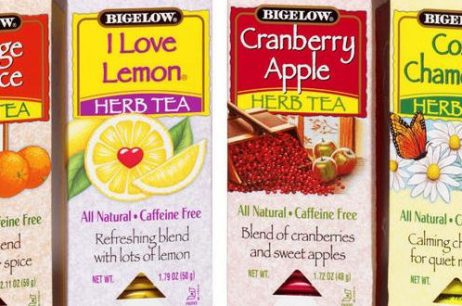
Heritage Coffee Company
Heritage Coffee Company operates coffee roasting and dry powder blending facilities in London, Ontario with distribution centres in Montreal, Québec and Vancouver, British Columbia.

TWI Foods
TWI Foods is a manufacturer of high-quality specialty food items such as cake-rusks, cookies, cakes & frozen food items. It caters to the South Asian ethnic populations in Canada and worldwide.

Sweets from the Earth
Sweets from the Earth is a family-owned, vegan specialty baked goods manufacturer with over 150 types of desserts produced.

Central Smith Creamery
Central Smith Creamery manufactures a variety of frozen desserts, including ice cream, sorbet, frozen yogurt, and sundaes.
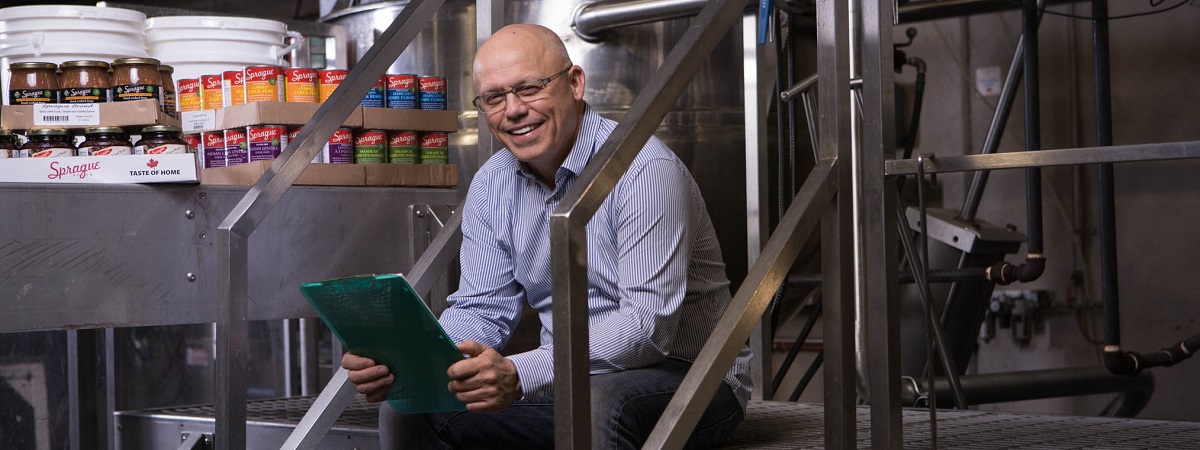
Sprague Foods
Sprague Foods Ltd. is a canned and jarred food manufacturer located in Belleville, Ontario. It manufacturers food for private label consumers, as well as under its own brand name: Sprague Foods. Some of its most popular products include soups made from beans and lentils, rice pudding, and gourmet tomato sauces. Its highly-automated 33,000 square-foot facility frequently fulfills food safety standards implemented by the Food and Drug Administration (FDA) and the Canadian Food Inspection Agency (CFIA). The president of the company is Rick Sprague, the fourth generation of the Sprague family to be involved in the business, which began in 1925.
